Emissions4Pasture
4 min read
Emissions4Pasture is a collaborative research programme between New Zealand and Ireland, focused on understanding methane emissions from dairy cows in pasture-based systems. Current greenhouse gas (GHG) inventories use a standard methane emissions factor (21.6 g/kg DM) for all feed types eaten by the dairy cow, but different feed types, qualities and the amount eaten lead to varying levels of methane production. Emissions4Pasture explores how factors like lactation stage, pasture species, management and seasonal growth affect baseline emissions, and how these influence cows’ responses to methane-reducing technologies.
Emissions4Pasture is a four-year collaborative research programme (2024 to 2028) between New Zealand and Ireland. It aims to improve how methane emissions from dairy cows in pasture-based systems are measured and understood.
It will also develop more precise emissions factors for pasture-based systems to improve farm and national-level accounting in both countries, which face methane reduction targets.
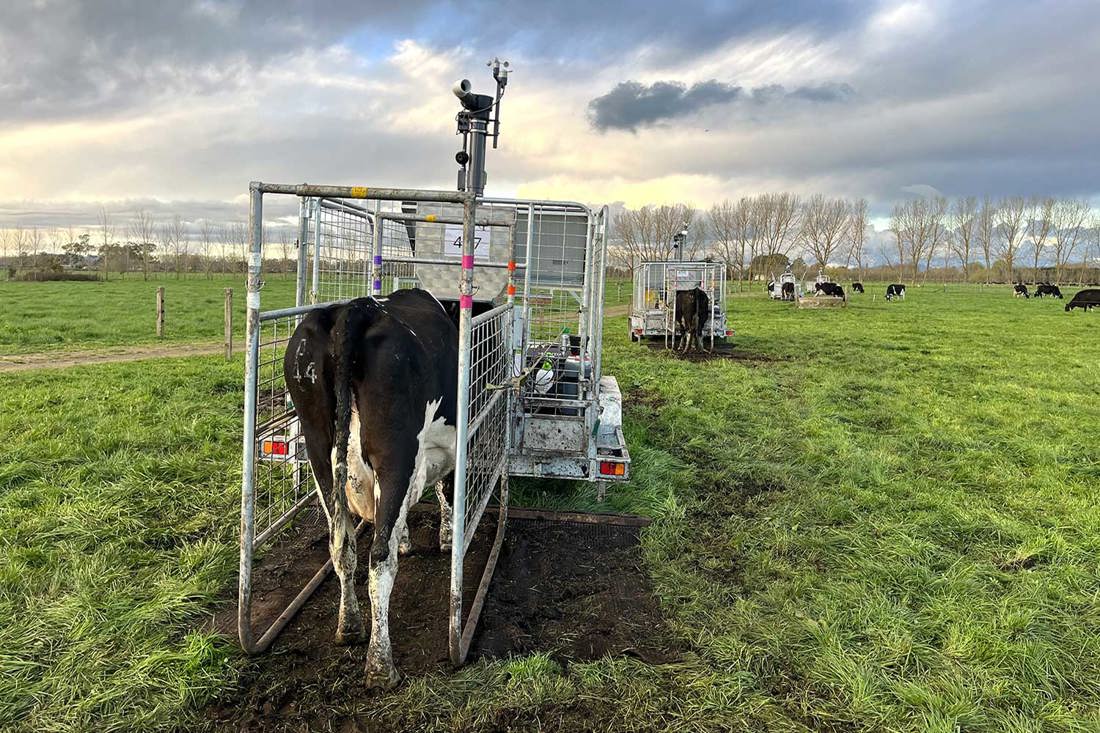
A collaborative research programme with Ireland is focusing on understanding and accounting for methane emissions from pasture-based dairy systems.
Currently, greenhouse gas inventories use a standard methane emissions factor for all feed eaten by a dairy cow. In New Zealand, this factor predicts that for every kilogram of dry matter that a cow eats, 21.6g of methane is produced. A similar approach is used in Ireland.
However, although feed is a major factor driving methane emissions, not all feeds are created equal. Different types, qualities and amounts of feed lead to varying levels of methane production. We are interested in exploring how this plays out within our pasture-based system.
Recent research from Ireland supports this variation, showing that cows grazing in spring produce less methane than expected based on inventory calculations, and less than they do in summer and autumn. Emissions4Pasture is testing whether similar patterns occur in New Zealand and whether the variation in methane is due to the pasture itself or connected to cows being in early lactation.
This will involve using two herds at one of the DairyNZ research farms in Hamilton, an autumn-calving herd and a spring-calving herd. Starting in August 2024, we are measuring methane emissions from these herds for 12 months while they are outdoors grazing pasture. At four times, spring, summer, autumn and winter, a subset of each herd will be brought into our indoor facilities to measure individual cow feed intake and methane from cows consuming fresh pasture.
Using these two herds of cows lets us see how both the cow and the pasture affect methane emissions. For example, in September/October, we will have cows in early lactation and late lactation all eating spring pasture, and in March/April we will have cows in early lactation and late lactation eating autumn pasture.
Grazing cow trials are also planned for Ireland. Beginning in spring 2026 (February), these trials will explore how different pasture species affect methane emissions and whether pasture management practices (e.g. high cover vs low cover) have an impact.
These trials will explore how different pasture species affect methane emissions and whether pasture management practices have an impact.
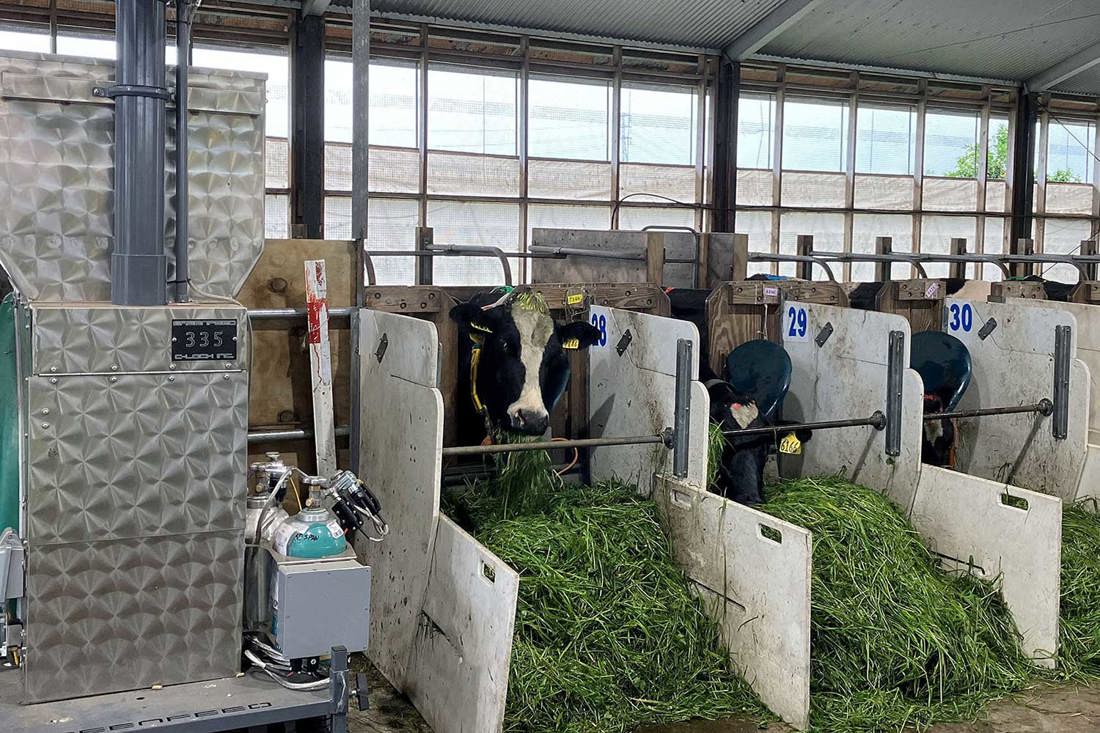
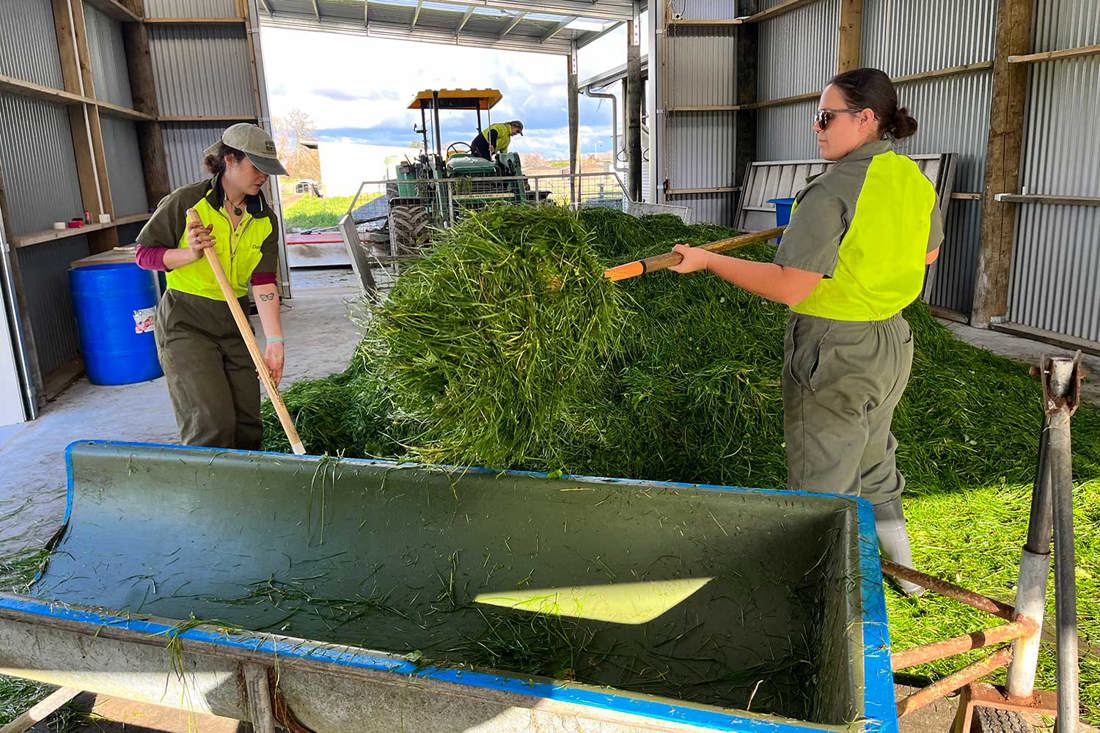
By understanding the factors behind the differing responses of grazing cows, we can develop technology specifically tailored to pasture-based systems and optimise its use throughout the season.
The joint programme strengthens our connection with Ireland and enables NZ to leverage current and future research. It also fits within DairyNZ’s wider Reduced GHG research programme.
Read more about DairyNZ’s larger programme of work for reducing greenhouse gas here.
This collaboration involves researchers, students, professors and database technology experts from DairyNZ and Ireland’s Agriculture and Food Development Authority (Teagasc), University College Cork and Irish Cattle Breeding Federation.
DairyNZ secured funding for this work in 2023 from the Ministry for Primary Industries (MPI) and the Ag Emissions Research Centre as part of the Joint Research Initiative between New Zealand and Ireland.
The research occurring in Ireland is funded by the Department of Agriculture, Food, and the Marine (DAFM).
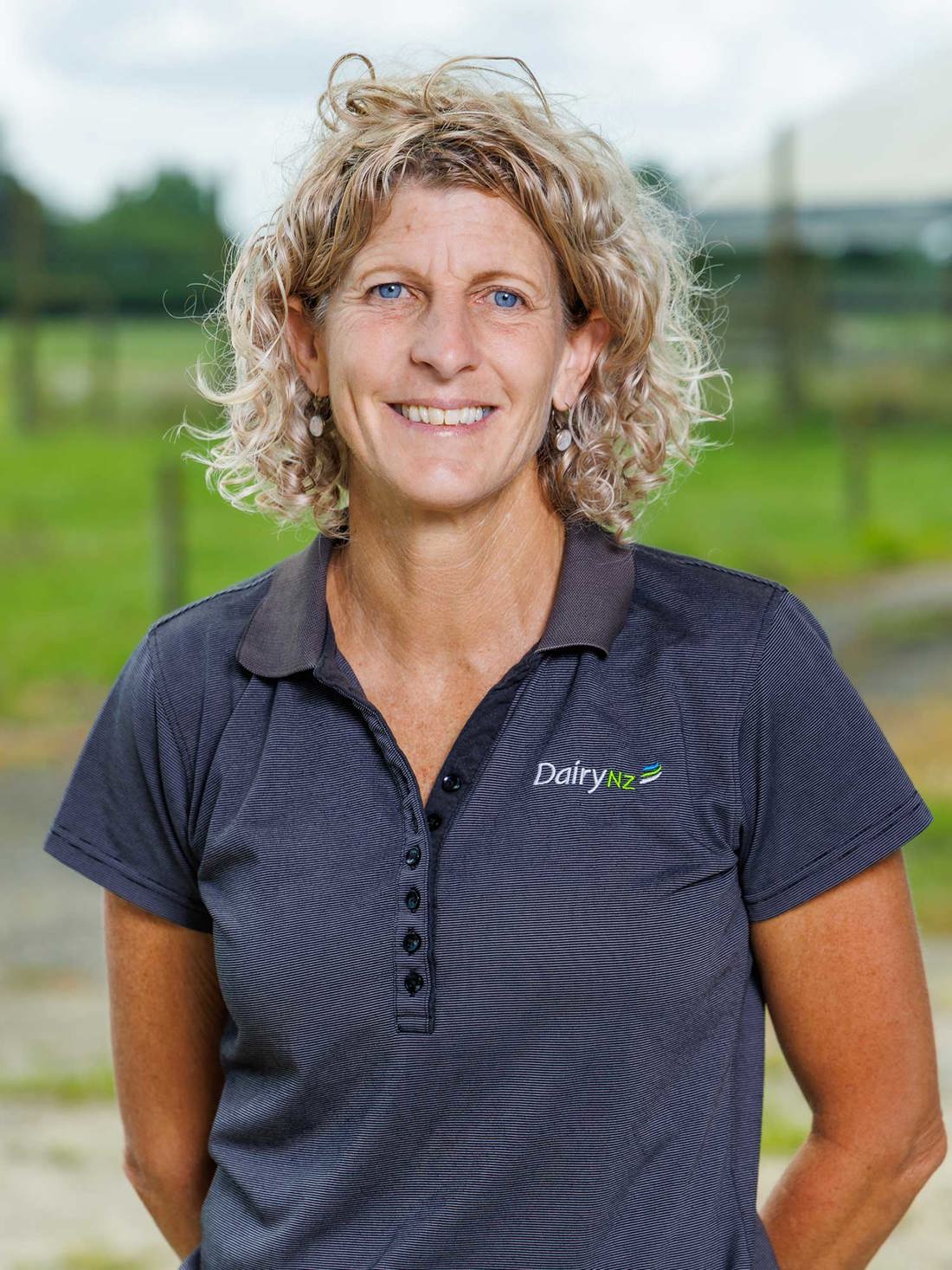
Jane leads the research team of DairyNZ’s reduced greenhouse gas emissions programme. She enjoys working with farmers and other stakeholders to provide solutions that help the dairy sector farm into the future.
Read more about Jane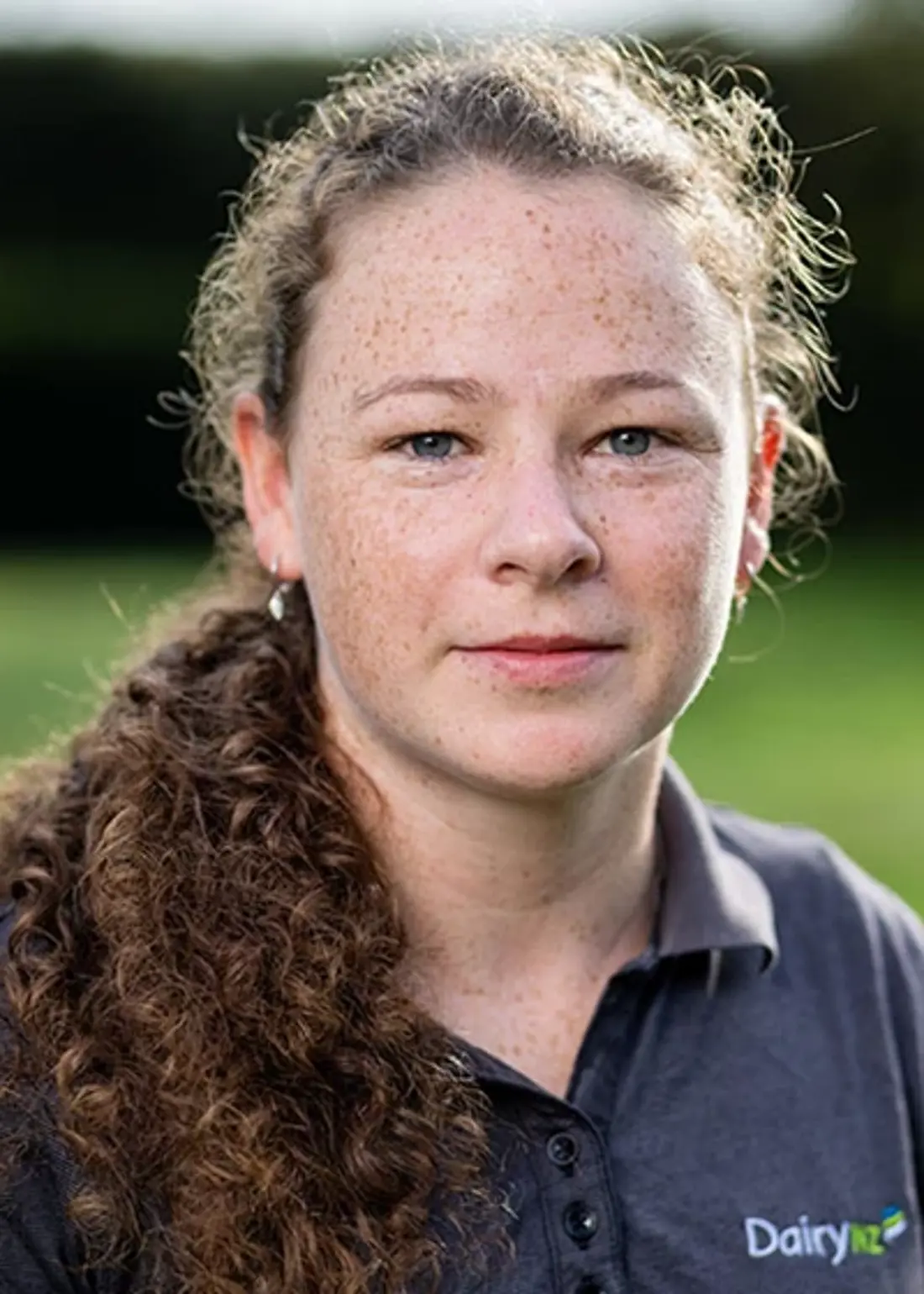
Konagh is a scientist working in the Reduced GHG team with expertise in ruminant nutrition, nitrogen excretion, and methane emissions. She combines strong research capability with a passion for delivering real-world solutions for farmers.
Read more about KonaghNow’s the perfect time to check in, plan, and set up for a strong season. We’ve pulled together smart tips and tools to help you stay ahead all winter long.
Whether you prefer to read, listen, or download handy guides, we’ve got you covered with trusted tools to support your journey every step of the way.
Put our proven strategies and seasonal tools to work. Boost production, support animal health and watch your profits hum.
Tools that are backed by science, shaped by farmers and made for this season.
That’s Summer Smarts.
Autumn Smarts brings together the research-backed tools that build resilience and boost performance.